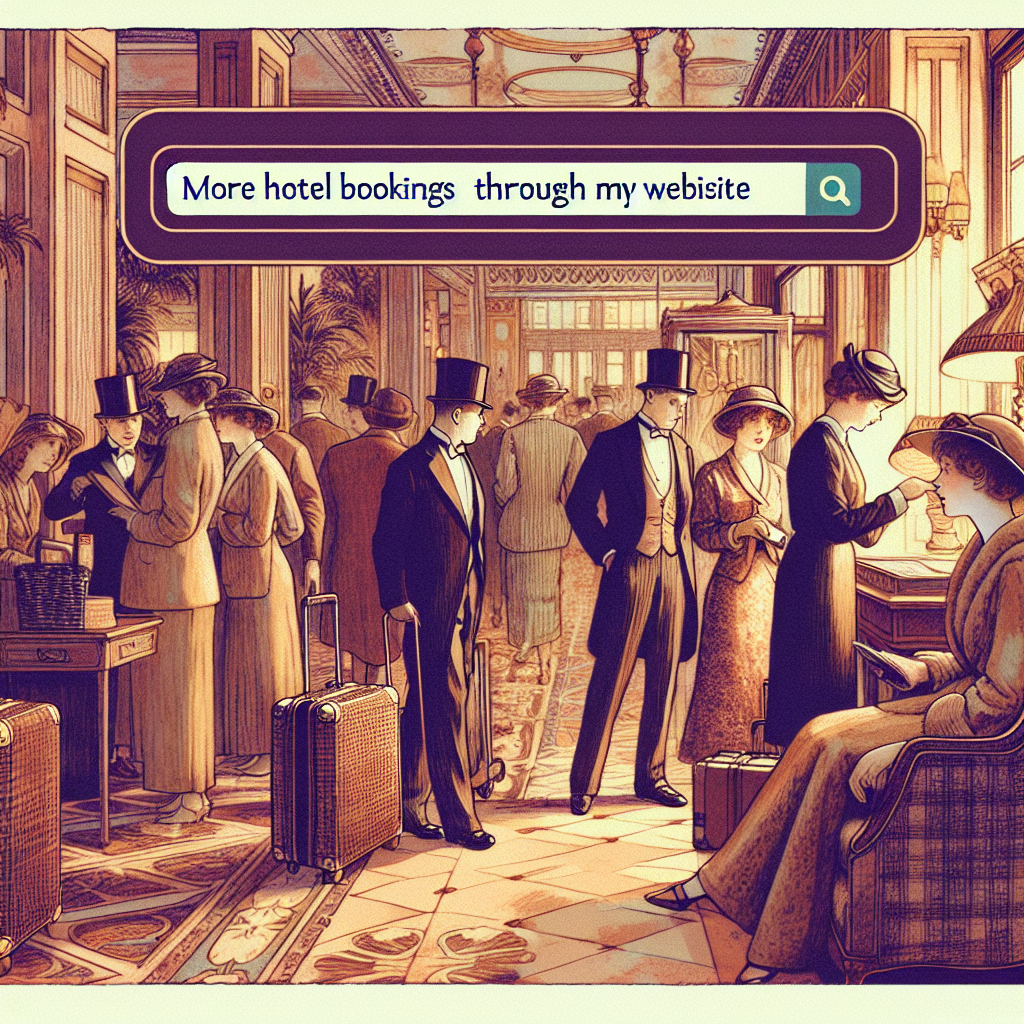Boosting Your Hotel Bookings Through Your Website
Increasing hotel bookings through your website is a crucial goal for any hotelier looking to maximize revenue and enhance guest satisfaction. With the rise of online travel agencies (OTAs) and booking platforms, it’s essential to implement effective strategies to drive direct bookings. This blog post will explore various tactics to help you achieve more hotel bookings through your website.
Optimize Your Website for User Experience
A well-designed, user-friendly website is the cornerstone of increasing hotel bookings. Your website should be easy to navigate, visually appealing, and mobile-friendly. Here are some key elements to focus on:
- Speed and Performance: Ensure your website loads quickly. A slow website can frustrate users and lead to higher bounce rates.
- Mobile Optimization: With a significant number of users booking hotels via mobile devices, a mobile-optimized website is essential.
- Clear Call-to-Actions (CTAs): Use prominent and clear CTAs to guide visitors towards booking. Phrases like “Book Now” or “Check Availability” should be easily accessible.
Leverage High-Quality Visual Content
High-quality images and videos can significantly impact a visitor’s decision to book a room. Showcase your property’s best features, including rooms, amenities, and surrounding attractions. Virtual tours can also provide an immersive experience, allowing potential guests to explore your hotel before making a reservation.
Implement a Seamless Booking Engine
A seamless and secure booking engine is vital for converting website visitors into guests. Your booking engine should:
- Be Easy to Use: Simplify the booking process with a few steps as possible.
- Offer Real-Time Availability: Ensure that room availability and rates are updated in real-time.
- Provide Multiple Payment Options: Offer various payment methods to cater to different preferences.
Utilize SEO Best Practices
Search Engine Optimization (SEO) is crucial for driving organic traffic to your website. By optimizing your website for relevant keywords, you can improve your search engine rankings and attract more potential guests. Here are some SEO strategies to consider:
- Keyword Research: Identify and target keywords that potential guests are likely to use when searching for hotels in your area.
- On-Page SEO: Optimize your website’s content, meta tags, and headers with relevant keywords.
- Local SEO: Optimize your website for local search by including your hotel’s name, address, and phone number (NAP) on every page. Create and maintain a Google My Business profile.
Offer Exclusive Deals and Packages
Encourage direct bookings by offering exclusive deals and packages that are only available on your website. These can include:
- Discounted Rates: Offer lower rates for guests who book directly through your website.
- Special Packages: Create packages that include additional perks such as breakfast, spa treatments, or local tours.
- Loyalty Programs: Implement a loyalty program to reward repeat guests with discounts or special offers.
Enhance Your Online Reputation
Positive reviews and testimonials can significantly influence potential guests’ booking decisions. Encourage satisfied guests to leave reviews on your website and popular review platforms like TripAdvisor and Google Reviews. Respond to reviews, both positive and negative, to show that you value guest feedback and are committed to improving their experience.
Utilize Social Media Marketing
Social media platforms are powerful tools for promoting your hotel and driving traffic to your website. Share engaging content, including photos, videos, and guest testimonials, to attract potential guests. Run targeted ads on platforms like Facebook and Instagram to reach a broader audience.
Implement Retargeting Campaigns
Retargeting campaigns can help you reach visitors who have previously shown interest in your hotel but did not complete a booking. Use retargeting ads to remind these visitors of your hotel and encourage them to return to your website to complete their booking.
Monitor and Analyze Performance
Regularly monitor and analyze your website’s performance to identify areas for improvement. Use tools like Google Analytics to track key metrics such as traffic sources, conversion rates, and user behavior. Adjust your strategies based on the insights gained to continually optimize your website for more bookings.
Conclusion
Increasing hotel bookings through your website requires a multifaceted approach that includes optimizing your website, leveraging high-quality content, implementing a seamless booking engine, and utilizing effective marketing strategies. By focusing on these areas, you can drive more direct bookings, reduce reliance on OTAs, and ultimately enhance your hotel’s profitability.
For more information and resources on boosting hotel bookings through your website, visit example.com.


